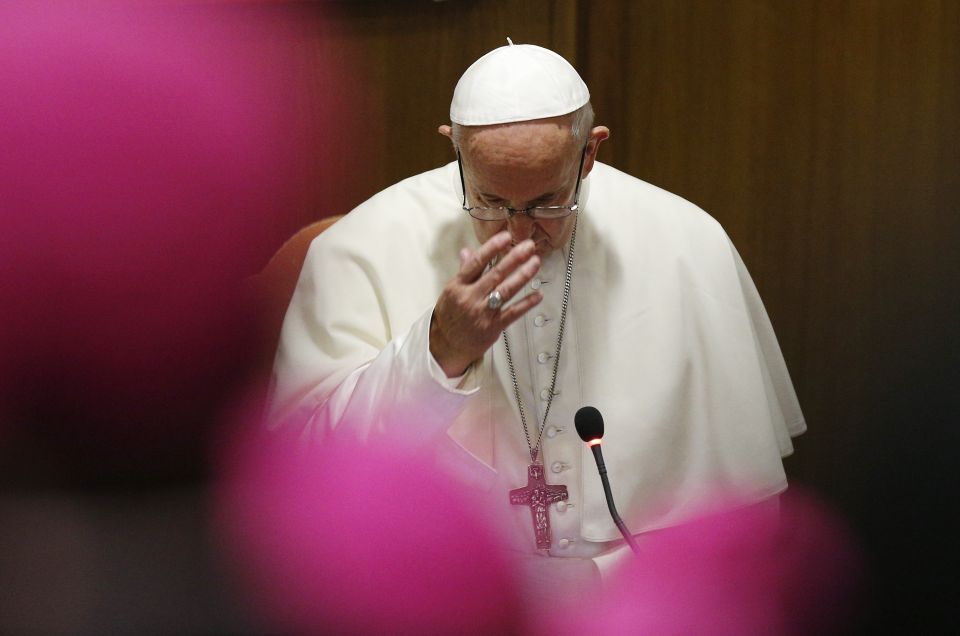In his recent opening speech at the Synod of Bishops on Young People, did Pope Francis, as many have claimed, actually re-capture John XXIII’s vision in his opening address to Vatican II?
Pope Francis states that “sophisticated theological argument” is unnecessary “to prove our duty to help the contemporary world to walk towards God’s kingdom.” What then is needed?
Chiefly needed, he says, is the freedom to speak the truth with charity. This need is exercised in the practice of dialogue in which we listen to each other before we present a mutually honest, transparent, and constructive critique of each other’s views: “The first fruit of dialogue is that everyone is open to newness, to change their opinion thanks to what they have heard from others.”
He adds, “Let us feel free to welcome and understand others and therefore to change our convictions and positions: this is a sign of great human and spiritual maturity.” This “openness” is so important to Francis that he takes it to be a “sign of a Church that really listens, that allows herself to be questioned by the experiences of those she meets, and who does not always have a ready-made answer.”
Indeed, “The accumulation of human experiences throughout history is the most precious and trustworthy treasure that one generation inherits from another.” Let’s call this the “learning Church.”
At the heart of dialogue is discernment. What is discernment? This key concept in Pope Francis’ thought is not easy to grasp. He says it is “an interior attitude rooted in an act of faith.” Prior to becoming pope, Jorge Bergoglio wrote, “In a heart disposed by the active presence of the Holy Spirit, discernment is the capacity to recognize the work of God and the temptations of the Demon. Discernment is possible only by being open to the action of God.”
All this sounds very modern and spiritual, but missing is discernment’s grounding in the New Testament. For example, “And this I pray, that your love [in Christ] may abound still more and more in knowledge and all discernment, that you may approve the things that are excellent.” (Phil 1:10-11)
Among the gifts of the Holy Spirit, one is given the gift of “prophecy, to another discernment of spirits” (1 Cor 12:10); “But solid food belongs to those who are of full age [spiritually mature], that is, those who by reason of use have their senses exercised to discern both good and evil” (Heb 5:14); “Do not judge according to appearance, but judge with righteous judgment” (John 7:24); “By all means use your judgment, and hold on to whatever is good. Steer clear of evil in any form.” (1 Thes 5:21-22).
In the Old Testament, we read, “the discerning heart seeks knowledge.” (Proverbs 15:14) Clearly, the drift of these passages suggests that the biblical sense of discernment or judgment means exercising a proper discrimination to understand where we are in the flow of the culture, with all its challenges and opportunities.

If “listening,” “openness to newness,” “experience,” and “change” are characteristic terms of Francis’ approach to discernment in his opening address at the current Synod, we find an utterly different approach in John XXIII’s opening address at Vatican II.
First, regarding Vatican II’s aims, John states, “The greatest concern of the Ecumenical Council is this, that the sacred deposit of Christian doctrine should be more effectively defended and presented.” A more effective defense and presentation of the Christian faith presupposes ressourcement. This, a key conciliar goal, means a return to the authoritative sources of the faith, Scripture, and Tradition, in order to revitalize the present. It is a creative retrieval of these sources in order to move forward faithfully.
A second key goal of Vatican II is aggiornamento, meaning – according to John XXIII –“looking at the present times which have introduced new conditions and new forms of life, and have opened new avenues for the Catholic apostolate.” Francis’ description of discernment along with its characteristic terms of listening, openness, experience, change, etc., are features of aggiornamento. But in John this was not an isolated motive for renewal, which it seems to be in Francis’ opening synod address.
Francis urges us not to forget about divine revelation because it “enlightens and gives meaning to history and to our existence.” An orthodox Christian obviously could not think otherwise. Still, absent from Francis’ address is any reference not only to the nature of divine revelation but also the central role of the Church’s teaching in her ongoing life.
The Catechism of the Catholic Church is helpful here: “There is an organic connection between our spiritual life and the dogmas. Dogmas are lights along the path of faith; they illuminate it and make it secure. Conversely, if our life is upright, our intellect and heart will be open to welcome the light shed by the dogmas of faith.” (§89) This is the “teaching Church,” which is completely absent in Francis’ address, but not in John XXIII.
Third, of course, ressourcement is not merely about repeating the teachings of the Church; otherwise, it would not need a “creative retrieval” in order to move faithfully forward. Rather, says Pope John:
What is needed is that this certain and unchangeable doctrine, to which loyal submission is due, be investigated and presented in the way demanded by our times [aggiornamento]. For the deposit of faith, the truths contained in our venerable doctrine, are one thing; the fashion in which they are expressed, but with the same meaning and the same judgment [eodem sensueademque sententia], is another thing.
John’s call for ressourcement includes aggiornamento, but the latter is subordinate to the former. His approach doesn’t separate the “listening Church” from the “teaching Church.” It is pastoral in the sense that truth and mercy co-exist and mutually influence each other in the Catholic Faith’s response to the challenges and opportunities of the day.
It would help to incorporate John XXIII’s approach in the Synod’s reflections on Youth.















